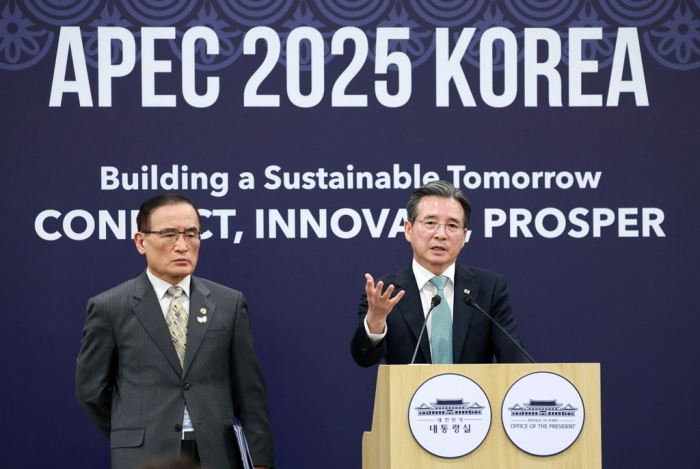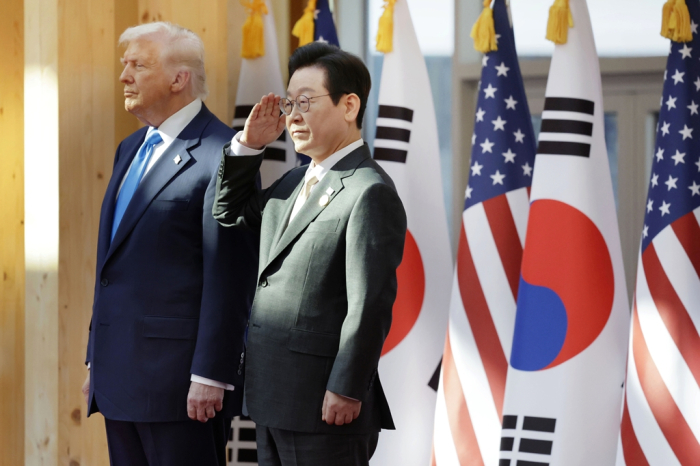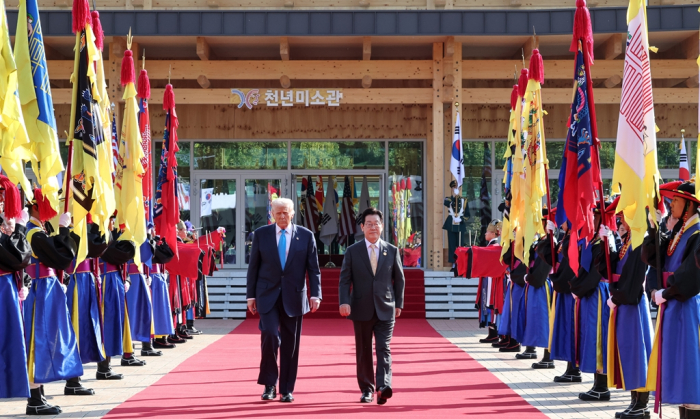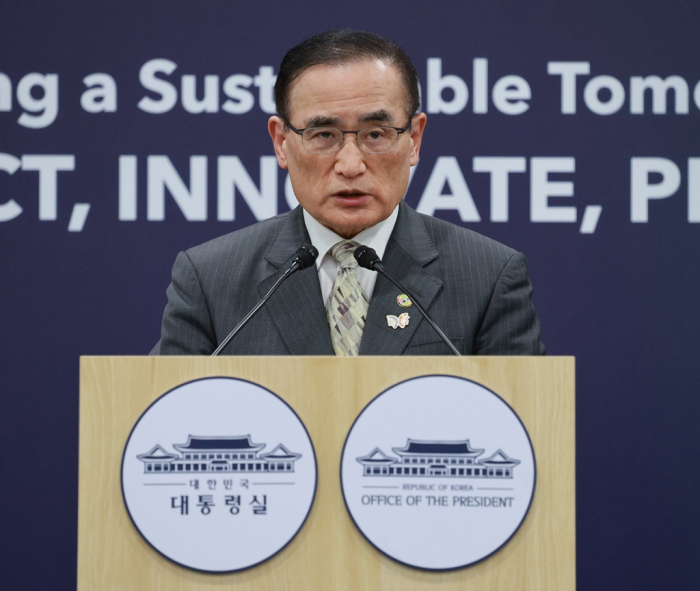GYEONGJU – South Korea and the US reached a sweeping settlement on tariff, commerce and funding phrases on Wednesday, capping months of adverse negotiations that had threatened to overshadow the APEC summit and bilateral relations.
Beneath the deal, Seoul will make investments $200 billion in money within the US economic system – a part of a broader $350 billion funding framework – however with an annual ceiling of $20 billion, in keeping with Kim Yong-beom, Seoul’s presidential coverage chief.
The accord, sealed simply hours after a summit between President Lee Jae Myung and his US counterpart Donald Trump in Gyeongju on the sidelines of the APEC leaders’ assembly, marks a dramatic breakthrough following weeks of impasse.
“The $350 billion dedication consists of a $200 billion money funding and $150 billion in shipbuilding cooperation,” Kim stated at a media briefing. “It’s comparable in construction to Japan’s $550 billion monetary package deal with Washington, however we imposed an annual cap to guard Korea’s overseas trade market.”
Kim stated that Seoul’s funding tempo will transfer in tandem with venture progress, making certain the outflow of funds stays inside “manageable limits” for Korea’s monetary and forex markets.
MASGA PROJECT TO BE LED BY KOREAN FIRMS
The shipbuilding partnership, dubbed the MASGA, or Make American Shipbuilding Nice Once more, initiative, goals to revitalize the US shipbuilding trade. The initiative can be led by Korean corporations and embrace each direct funding and ensures, in keeping with Kim.

The US authorities has agreed to expedite land leases, utilities and regulatory approvals for collaborating Korean corporations, whereas prioritizing Korean-led consortia and venture managers, he stated.
On the politically delicate problem of agriculture, the presidential coverage chief pressured that Seoul “fully defended” its market from additional liberalization.
“We now have agreed to not open any new agricultural sectors, together with rice and beef,” he stated. “As an alternative, either side agreed to strengthen cooperation and communication on quarantine procedures.”
TARIFFS ON KOREAN AUTO IMPORTS TO BE LOWERED TO 15% FROM 25%
As a part of the tariff and commerce package deal, the US will minimize its tariffs on Korean vehicles to fifteen% from 25%, aligning it with the reciprocal price that has been in impact since July.

Pharmaceutical and wooden merchandise will obtain most-favored-nation therapy, whereas plane elements, generic medication and non-US-produced pure assets will get pleasure from zero tariffs, Kim stated.
Semiconductors, a linchpin of Korea’s export sector, will face tariffs “no larger than these utilized to Taiwan,” he stated.
The tariffs deal additionally contains strict industrial safeguards.
“Solely commercially viable initiatives with assured returns will proceed,” Kim stated. “Till funding principal retrieval, earnings can be cut up 50-50 between the 2 nations, with flexibility to regulate if we’re unable to retrieve principal funding inside 20 years.”
Kim emphasised that the settlement contains “provisions to regulate funding timing and dimension” in case of forex market volatility.

The general funding pledge runs via January 2029, although disbursements will stretch over an extended horizon to mitigate the overseas trade market affect.
LEE, TRUMP DISCUSS NUCLEAR-POWERED SUBMARINES
On the Lee-Trump summit on Wednesday, the Korean president proposed that South Korea safe nuclear gas to energy nuclear submarines – a longstanding safety ambition for Seoul.
Nationwide Safety Adviser Wi Sung-lac stated on the media briefing that Trump expressed “understanding” of Korea’s want for such capabilities amid North Korea’s accelerating naval nuclear program.

The 2 sides agreed to start follow-up consultations, Wi stated.
Lee instructed Trump that enhancing the alliance’s protection posture, together with superior naval property, could be important for regional stability.
Trump responded that “given the altering safety panorama, the US acknowledges South Korea’s strategic necessities,” in keeping with Seoul officers.
The Gyeongju summit between Lee and Trump – their second in two months – capped weeks of high-stakes diplomacy forward of the APEC leaders’ assembly, solidifying what officers in each capitals known as “a realistic, honest and forward-looking partnership.”

